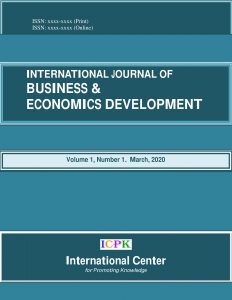How does Egypt face the negative effects of the Russian-Ukrainian war on the energy sector in the state budget 22/23
Mohamed Abd Elmenam Elshawarby
Abstract Preview
The Ongoing War in Ukraine, With Its Repercussions and Risks to Energy Insecurity, Has Forced Many Countries to Reconsider Their Current Policies Regarding This Vital Sector. That Turbulence at Markets Gas Globalism May Be Help Egypt on Investigation Her Ambitions at What Regard Export Gas, At the Time Which Looking in Europe on Sources Alternative for Energy. Mortgage The Bank European This the Shift “Share Europe Actively Larger at Solve Tensions Current, And Facilitate Access to Lines Pipe”. The Egyptian State Is Trying to Achieve Self-Sufficiency in Oil, Through What Achieved It in Sector Petroleum and Wealth Metal on Approach Outstanding and Strategy Flexi, Which Works with This Sector the Vital Were Succeeded at Skip Many from Challenges and Achieve Number Big from Achievements She Was Numbers Output and Search and Exploration and Signature Conventions and Enter Companies Globalism and Volume Investments Good Guide on That Achievements.
THE DEPLOYMENT OF ENERGY SOURCES AND THE INHERENT SOCIAL WELFARE COSTS
MEHRSHAD RADMEHR
Abstract Preview
This study explores the long-run effect of renewable and non-renewable energy consumption on the welfare cost. The human welfare cost of ambient particulate matter exposure, occupational particulate matter exposure, and household air pollution were examined. The data of the Organization for Economic Cooperation and Development between period 1990 – 2019 were used. Contrary to non renewable energy, conventional mean-based panel estimators showed that renewable energy has an insignificant link with the health cost of ambient particulate matter exposure. Moreover, renewable energy consumption significantly and negatively affected the health cost of household air pollution. Furthermore, renewable, and non-renewable energy consumption showed a statistically insignificant effect on the welfare cost of occupational particulate matter exposure. Quantile dynamics uncover a dependent inverted U-shaped relationship between non-renewable energy utilization and the health risks of occupational particulate matter exposure.
INFLUENCE OF HUMAN RESOURCE MANAGEMENT STRATEGIES ON EMPLOYEE TURNOVER IN LOCAL NGOS IN KENYA: A SURVEY OF WASH SECTOR NGOS IN WESTERN KENYA
Mark Okinyi Oyoo
Abstract Preview
This study used experimental study design and quantitative analysis to assess WASH sector NGOs in western Kenya to determine the impact of human resource management strategies on employee turnover. The survey targeted members of the Western WASH NGO’s management positions, so the population covered by the survey was 102 management positions. A standardized questionnaire was used to collect the primary data. Both descriptive and inference statistics were used in the study. The paid salary did not correspond to the work and made the employee feel entirely grateful for his work and dedication. This work does not fully utilize the skills and abilities of employees and does not bring satisfaction or satisfaction to employees. Employees do not have all the resources and equipment they need to get the job done correctly. There was a lack of knowledge and information sharing throughout the organization. Seminars and workshops were not used regularly to improve the skills of employees within the organization. Job shadowing was never used to require skills to grow into a particular career path, nor was it used to help employees become accustomed to different career options. Contracts within the organization were inflexible to allow the organization to respond to fluctuations in demand. The study recommended paying employers an excellent salary to avoid exposing workers to financial constraints and at the same time to reward them for non-compliance with their obligations. Employers need to look for suitable leaders who value their employees’ contributions and actively emphasize their improvements. Professional training, coaching, and mentoring is required to increase career opportunities within the organization. Organizations need to increase open-ended contracts rather than fixed-term contracts and explain employee behavior at the end of the contract.
100+ Years Teaching Financial and Intermediate Accounting Suggestions for Change
Robert P. Derstine, James M. Emig, Kevin E. Flynn
Abstract Preview
In today’s educational environment, many students have grown accustomed to memorizing their textbook and class notes. The students then parrot back the material when taking an exam. Their goal is not to learn, but rather to get a good grade. In this paper, we show examples and illustrations of how we teach financial accounting in a manner so that students learn and become adaptive problem solvers, not human parrots. We show how we simplify accounting presentations so that students more easily learn the concepts being taught. The goal is to get students to understand what they are doing so that they are not blindly following instructions in the text. Specifically, we show how we: 1.) Expose our students to some of the controversial items facing the accounting/business world in a rapidly changing environment, 2.) Stress the “Whys” – not simply the “Hows”, and 3.) State when and why we don’t always agree with the textbook.
